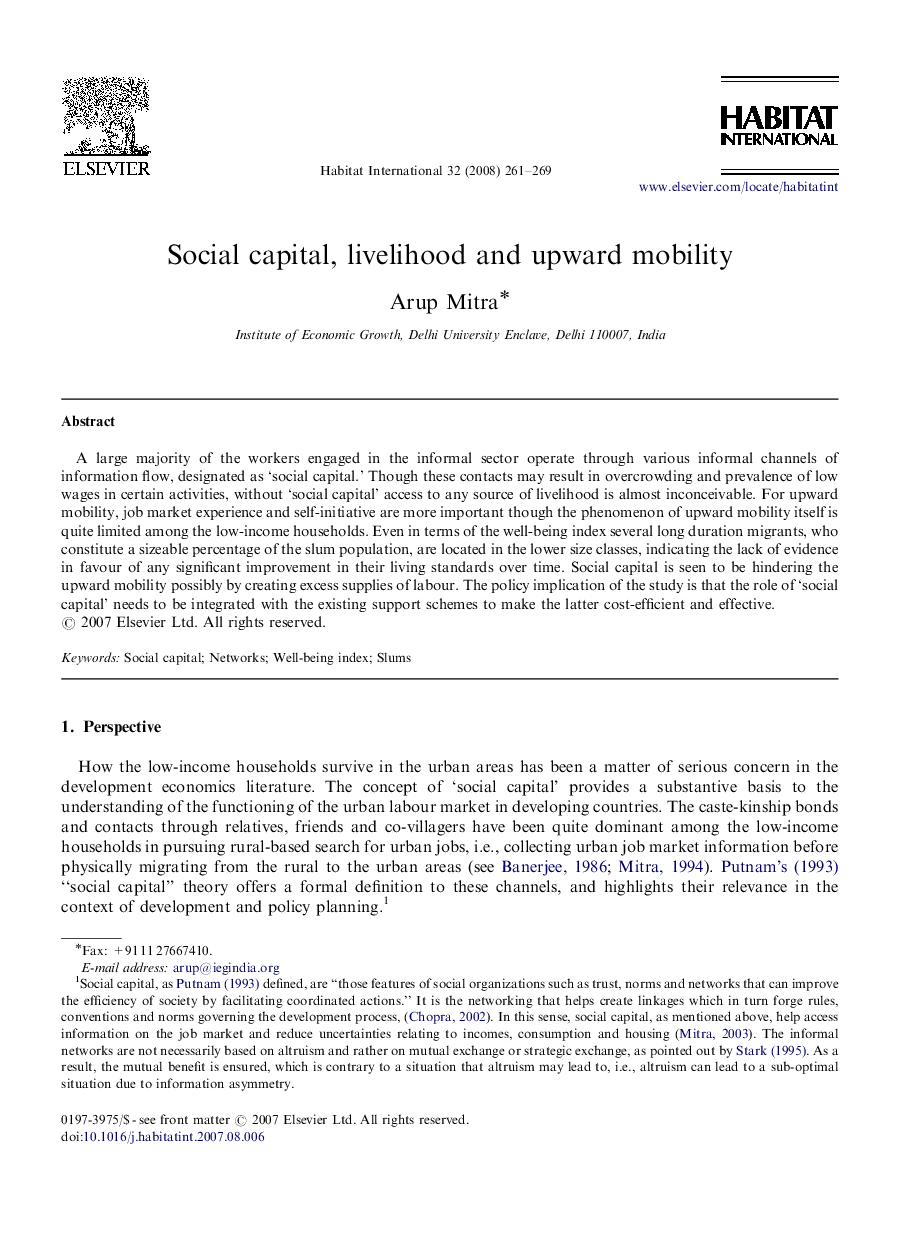| Article ID | Journal | Published Year | Pages | File Type |
|---|---|---|---|---|
| 1048504 | Habitat International | 2008 | 9 Pages |
A large majority of the workers engaged in the informal sector operate through various informal channels of information flow, designated as ‘social capital.’ Though these contacts may result in overcrowding and prevalence of low wages in certain activities, without ‘social capital’ access to any source of livelihood is almost inconceivable. For upward mobility, job market experience and self-initiative are more important though the phenomenon of upward mobility itself is quite limited among the low-income households. Even in terms of the well-being index several long duration migrants, who constitute a sizeable percentage of the slum population, are located in the lower size classes, indicating the lack of evidence in favour of any significant improvement in their living standards over time. Social capital is seen to be hindering the upward mobility possibly by creating excess supplies of labour. The policy implication of the study is that the role of ‘social capital’ needs to be integrated with the existing support schemes to make the latter cost-efficient and effective.
